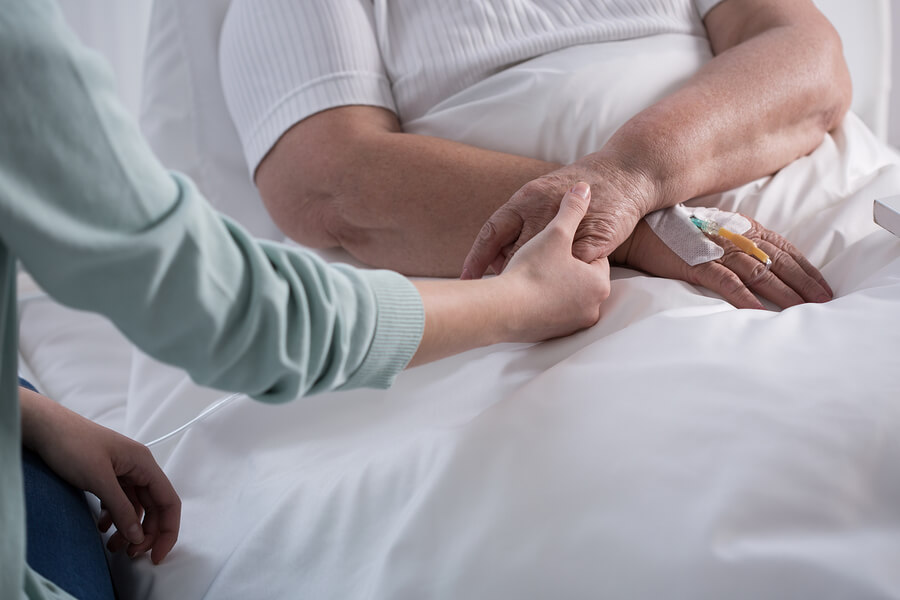July is Sarcoma Awareness Month – The Forgotten Cancer
July is Sarcoma Awareness Month, an opportunity to focus on this type of cancer that may go unnoticed until a doctor renders a diagnosis. It is another layer of complexity that adult children often face when providing care for a parent who wants to continue living independently.

Home Care in Daphne AL: Sarcoma Awareness Month
What is Sarcoma?
Sarcomas are cancers that form in the connective tissues and can occur in any part of the body. The connective tissues are made up of fat, blood vessels, nerves, bones, muscles, cartilage, and skin tissue. Sarcomas have two general categories: soft tissue sarcoma and the bone sarcomas. Soft tissue sarcoma can occur in areas such as in the fat, muscles, blood vessels, tendons, fibrous tissues as well as the tissue around the joints.
The three types of bone sarcomas include osteosarcoma, Ewing’s sarcoma, and chondrosarcoma. Osteosarcomas are common in children, while chondrosarcomas are typical in adults.
Why is Sarcoma Known as the Forgotten Cancer?
Sarcoma is known as the “forgotten,” cancer because it is rare and accounts for only 1% of adult cancers. Caring for a sick, elderly parent who demands independence is challenging. The adult child must take on a caretaking role without stripping the parent of their dignity.
The Challenges Cancer Caregivers Face
Caregivers are the people who help a cancer patient without financial compensation. While some families may have a plan for senior care, some adult children play the role by default. Here are some of the challenges caregivers face when dealing with a cancer diagnosis:
- Providing elder care for a parent with a chronic illness is a full-time job
- They do not get a chance to process the diagnosis
- They may not want to be a caregiver
- They may face depression
While there are benefits to caregiving, like forming a special bond with the patient and forming special memories, it is undoubtedly a physically and emotionally daunting position.
Dealing with Cancer Treatment
Cancer itself is frightening. Patients and their caregivers face worrying about how a cancer like a sarcoma affect their lifespan. They also worry about the treatment options, side effects, and quality of life. Cancer treatments are not straightforward, and it is more complicated and challenging for an older patient. Age is not the only factor that determines treatment. Here are some other considerations:
- The type of cancer
- Whether the cancer is local or if it has spread (and how far)
- Risks and benefits for each treatment
- Existing medical conditions
- Quality of life
- Treatment goal
When to Consider Assistance from a Home Care Agency
Patients find comfort in living in a familiar setting, and that place is their home. It presents a challenge when caring for an elderly parent, especially if the adult child caregiver has their own family.
Home care agencies exist to help senior adults achieve independent living for as long as possible. Agency-vetted home care providers benefit both the adult child and the parent. They assist with daily routines and support their medical needs.
If a parent does not want to live with an adult child or in an assisted living facility, a home care provider is a perfect option. They will support the patient’s goals for treatment as well as their quest to live independently.
If you or someone you know needs Home Care in Daphne, AL, please contact the friendly caregivers at Hughes Home Care. We provide quality and affordable care for your elderly loved ones in our community. Call Us Today 251-517-9901. Serving Mobile & Baldwin County.
Source
Nfcr.org
Sarcomaalliance.org
- Home Care Makes Independent Living Easier For Seniors With Arthritis - April 24, 2025
- Risk Factors that Increase the Likelihood of Heart Failure - April 11, 2025
- Is it Possible for Seniors to Eat 30 Plants a Week? - March 25, 2025
